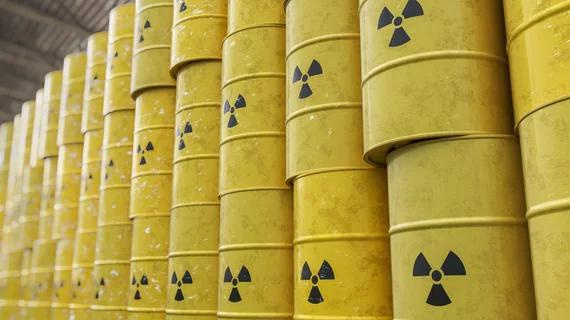Department of Energy awards SHINE $32M in effort to boost domestic isotope supply
SHINE Technologies has been given an additional $32 million in funding to continue its efforts to boost medical isotope production in the United States.
The Department of Energy's National Nuclear Security Administration (DOE/NNSA) awarded SHINE the money as part of a current agreement related to the future production of molybdenum‑99 (Mo-99) at Chrysalis—SHINE's large scale production facility being built in Janesville, Wisconsin.
The funding is significant, as Mo-99 is used in more than 40 million diagnostic procedures every year. The U.S. consumes around half of the world’s supply of Mo-99 and relies largely on other countries to provide the isotope. Producing it domestically would secure a vital supply of the isotope, and also eliminate the risks related to importing it from outside of the U.S., like losing a bulk of product in transit due to its short half-life.
"By creating a modern source of neutrons, we're helping solve critical isotope supply challenges here and now with a more sustainable platform for the long-term,” Greg Piefer, founder and CEO of SHINE, said in a release. “We look forward to assuring that patients in the U.S. and globally will have access to the medicine they need.”
The cooperative agreement between SHINE and DOE/NNSA initially went into effect in 2021. This latest investment brings the total funding value of the cooperative agreement to $74 million, though DOE/NNSA has awarded SHINE over $114 million since 2010.
"Wisconsin's businesses and workers are leading the charge in medical breakthroughs and cutting-edge technology that help people live healthier lives," said U.S. Sen. Tammy Baldwin, D-Wis. "I am proud to support this investment, boosting our Made in Wisconsin economy and helping give our healthcare providers the tools they need to diagnose and treat serious diseases like heart disease and cancer."
SHINE expects to be able to produce Mo-99 commercially by 2027.

